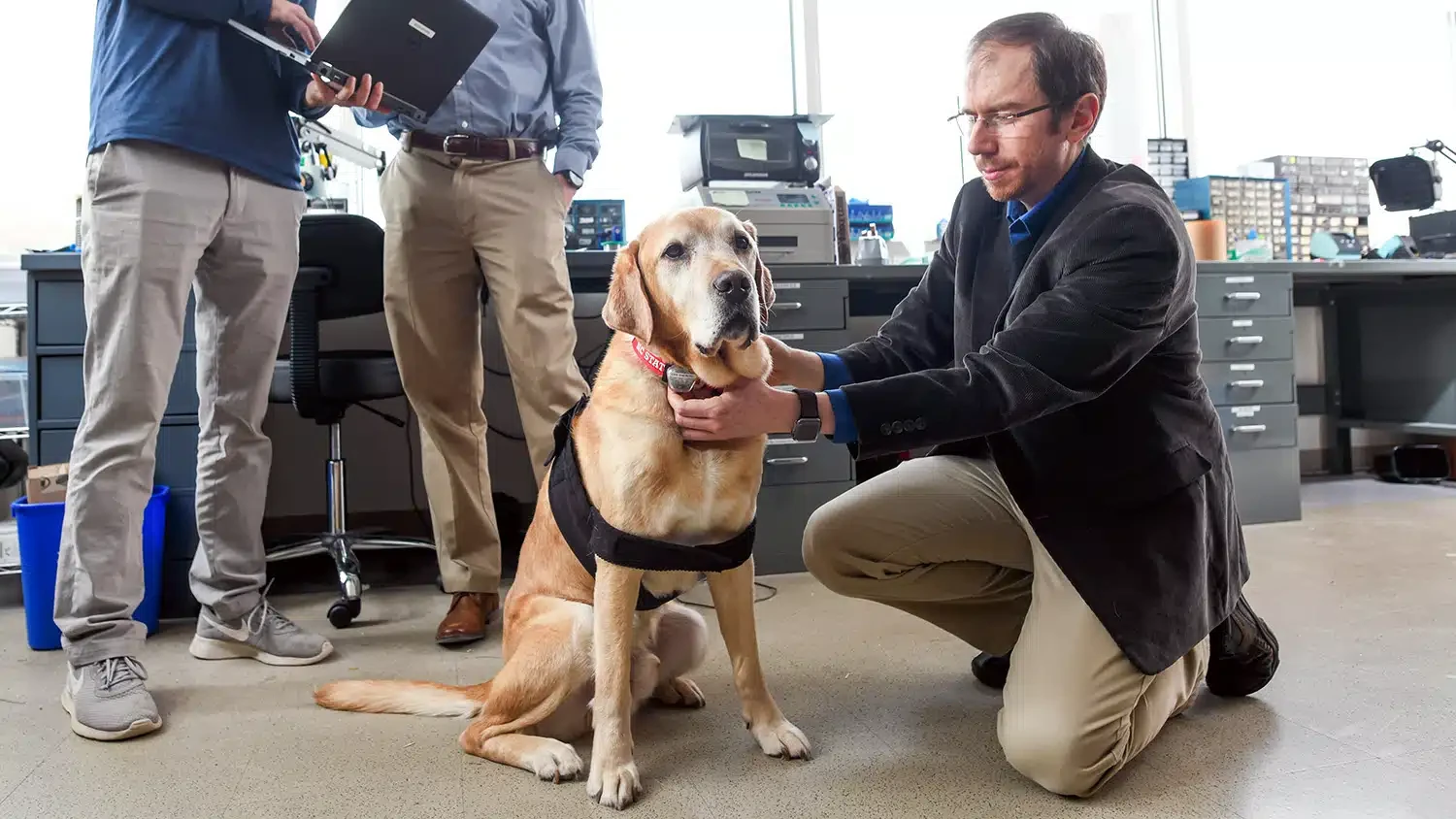
Alper Bozkurt Receives Chancellor Innovation Fund
Alper Bozkurt’s wearable “EKG” for dogs research has been selected to receive the Chancellor’s Innovation Fund for the third year.
September 1, 2023 ![]() Isabella Mormando
Isabella Mormando
Big ideas are born at NC State on a regular basis. Bill Spruill knows that — which is why he decided to donate close to a million dollars to the university in support of the Chancellor’s Innovation Fund (CIF).
Starting this year, Spruill’s 2ndF Research Commercialization Fund will provide additional support to annual awardees of the CIF.
“When I looked at where might the next SAS, where might the next Cree (now Wolfspeed), where might the next Quintiles (now IQVIA) come from, I think focusing on NC State technology is a no-brainer,” Spruill told the News & Observer. “NC State is the place where we generate the most promising technology in the state.
The 2ndF Research Commercialization Fund has committed to providing $900,000 in financial support over the next three years.
“The transformation of university research into commercially viable businesses is the best way for North Carolina to be a globally competitive juggernaut in workforce development, wealth creation, and economic development,” says Spruill, a tech inventor turned investor and philanthropist from Goldsboro, North Carolina.
“We are grateful for the generous support from Bill and the 2ndF team, and we’re excited to use his gift to expand the Chancellor’s Innovation Fund program,” says Amy Parker, assistant director of research commercialization programs in NC State University’s Office of Research Commercialization. “In addition to the funding provided, the industry knowledge and connections that 2ndF can share with CIF-funded researchers who may be exploring commercialization for the first time will be a critical asset as we work to successfully transition NC State innovations to market.”
The CIF, established in 2010, awards support to short-term, commercially focused research projects. Each year, a select few promising proposals are chosen based on their likelihood of market success — as well as their potential societal benefits.
The CIF seeks to help this research bridge the gap between public and private funding. For every dollar the CIF awards, it generates close to $20 in additional funding or investment.
To date, the CIF has granted nearly $4.5 million to 75 projects — which have attracted over $78 million in follow-on funding. These projects have led to 34 startup companies, 63 commercialization agreements and $2.5 million in licensing revenue.
Wearable “EKG” for Dogs
Nowadays, a wristwatch can track your heart rate, measure your blood oxygen level and even give you an electrocardiogram test (commonly abbreviated as “EKG” or “ECG”). And plenty of pet owners probably wish they could afford to track their furry friend’s health in real-time the same way, too. Thanks to David Roberts and Alper Bozkurt, maybe one day they can.
Roberts, an associate professor in the Department of Computer Science, and Bozkurt, a Distinguished Professor in the Department of Electrical and Computer Engineering and co-director of the ASSIST Center and IConS, have developed an algorithm that can monitor cardiac activity in dogs — consistent with an EKG — using inertial sensors already employed in pet activity trackers available on the market today. Their software enables EKG measurement via existing low-cost, generic hardware. All of this means you might be able to eventually keep much better track of your canine companion’s heart health just by attaching an affordable device to their collar.
The funding will be used to expand Bozkurt and Roberts’ proof-of-concept to a larger, more diverse population of dogs and test the system on other commercially available collars, which will include shipping samples to potential partners. This is the third time Bozkurt received a CIF award with the previous research being on smart e-textiles and wearable sleep monitoring systems.

